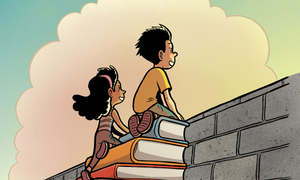text
Informational
I fit the description...
In this blog post, Steve Locke—a college professor of 13 years—details being wrongfully detained by the police while walking to get lunch all because they believed he matched a description.
April 28, 2016
